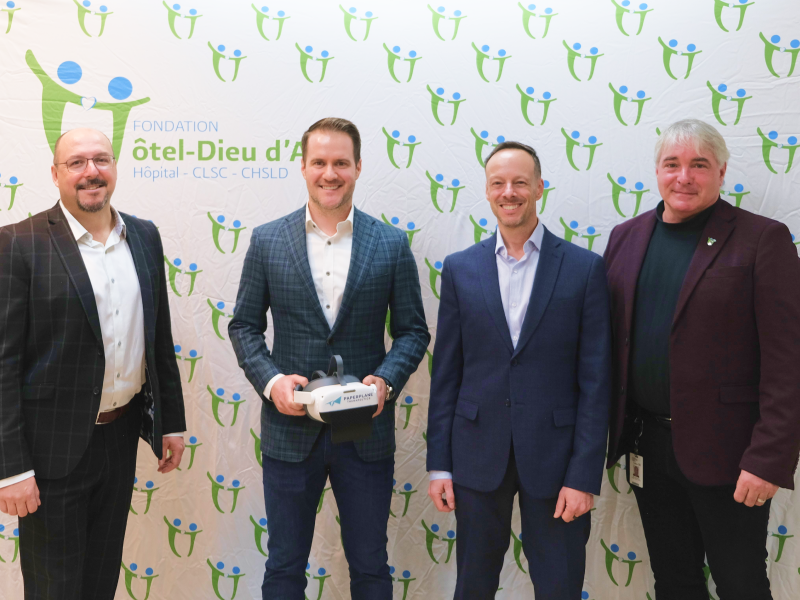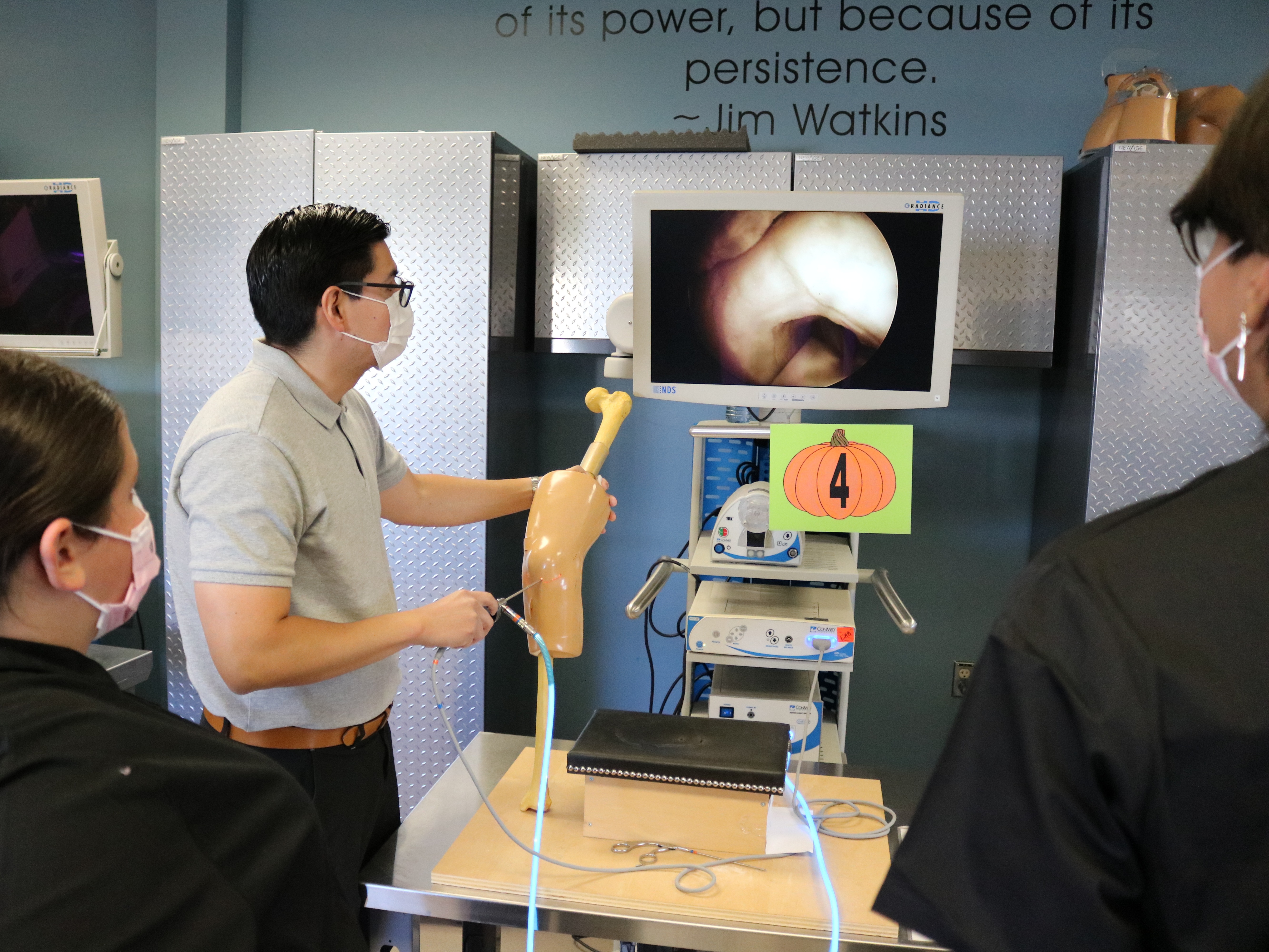Health
Bringing the best of Canadian health care to those in need
May 30, 2019
Powered by one of the world’s fastest networks, mobile health ‘clinics on wheels’ provide cutting-edge care to thousands of impoverished and disadvantaged people in cities across the country — and more help is on the way.
It’s just before 10 a.m. on a Tuesday morning when a large white van pulls into the gravel driveway outside the Rainbow Kitchen community foodbank in the Victoria suburb of Esquimalt.
Behind the wheel, nurse Maude Blanchette Lamothe barely has time to put on the brakes before a bearded man approaches the passenger’s side window, cupping his jaw with his hand. He’s got a terrible toothache and no money for Aspirin or Tylenol. He wants her to help make the pain go away. Now.
It’s a familiar scene. Blanchette Lamothe and the Street Nurse team with Vancouver Island Health Authority who help staff the mobile health clinicare acutely aware of the intense need for primary health care among the scores of people who, because of mental illness, addiction, poverty and a host of other circumstances, face barriers to Canada’s medical system they can’t overcome on their own. The clinic exists to break that cycle and ensure that help reaches all Canadians.
With an estimated 30,000 Canadians homeless on any given night, and opioid use reaching epidemic levels across the country, the demand for this kind of service is only intensifying.
“People need help and they need help right away,” she says.
It’s the same story in Vancouver, Montreal and Calgary where similar high-tech “clinics on wheels” have launched in marginalized urban neighbourhoods.
This year, a total of 10 clinics are expected to be on the road in cities across Canada, including Edmonton, Ottawa, Waterloo and Halifax.
It’s an undeniably ambitious project. To date, the clinics have collectively supported more than 12,000 patient visits — and that number is rising fast as awareness grows in the communities they serve.
The highly coordinated effort to make these mobile clinics a reality stems from a partnership between TELUS and the Canadian arm of global NGO Doctors of the World in Montreal where, since 2014, a state-of-the-art mobile health clinic has been in operation. In 2018, TELUS pledged another $5 million to support the planned national expansion, in partnership with Doctors of the World and various regional health authorities.
Blanchette Lamothe says the technology onboard the vans is a game-changer in effectively treating patients before they get sick. In the past, outreach staff carried patient paper files with them. Now that information is securely captured using TELUS Health electronic medical record (EMR) technology, where it can be easily accessed and shared among health care providers to keep track of patient conditions, treatments and referrals. Onboard Wi-Fi connected to globally recognized and lightening fast wireless networks that enable staff to video conference live with doctors and other experts to get advice or prescriptions, which can then be printed immediately at the nursing station in the back of the van.
In Ottawa, health officials are eagerly prepping for the launch of the mobile health program. The city, like elsewhere in Canada, has been grappling with an opioid crisis, leaving local support services struggling to ensure those in need can access low-barrier, high-quality health care. The launch of the mobile clinic makes that vital connection possible, even enabling real-time video conferencing with infectious disease specialists. That means clients won’t have to go to hospital to get the best possible care and that infections can be treated early on, preventing the need for hospitalization and expensive surgeries like heart valve replacements.
The van will also be used to provide mental health care and legal services through a partnership with the University of Ottawa law school and volunteer lawyers.
“The resources this new service brings will address priority gaps in care for a population that desperately needs us to bring care to them,” says Dr. Jeff Turnbull, Medical Director at Ottawa Inner City Health.
In Victoria, where the mobile clinic serves anyone who comes to the door, regardless of gender, outreach workers are starting to wind down from a deluge of illnesses, injuries and infections brought on by the inevitable rain that defines a West Coast winter and spring. “Street feet” — that is, foot injuries caused by prolonged exposure to moisture — is a common concern for those living in a tent or under a tarp. Compounding the problems, there’s the threat of bronchitis, pneumonia, tuberculosis, hepatitis and various other serious health afflictions that can sweep through incredibly vulnerable homeless populations.
The existence of the mobile clinic helped to ease the suffering. The access to and continuity of care is something many of these patients have never had before, which serves the clinics’ core mission of creating social equality by connecting all Canadians to our medical system.
It’s the dream destination towards which Blanchette Lamothe is always heading each time she takes the van out on the road.
“Our goal, ironically, is not to exist,” she says. “That would be the greatest situation ever. Until then, we’ve got a lot of work to do.”
Learn more about how TELUS Mobile Health Clinics are working with healthcare providers to reach people who need help.


